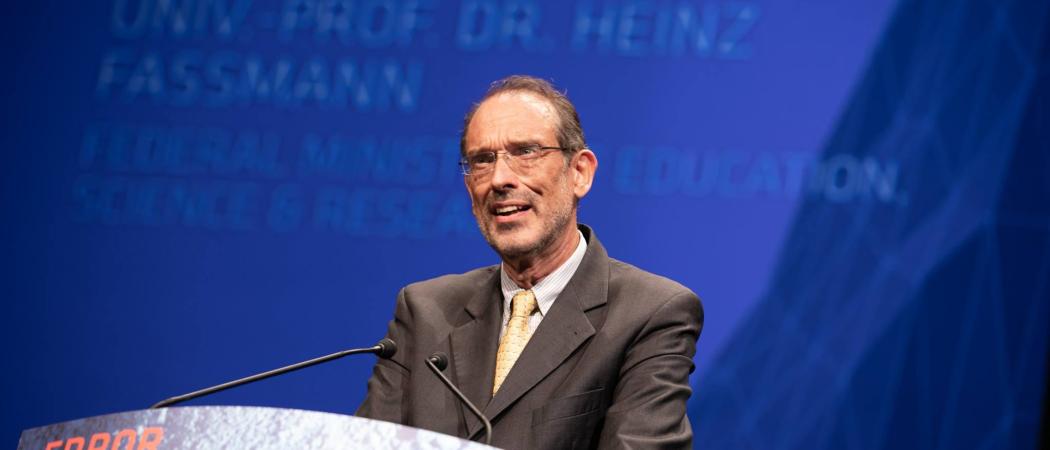Heinz Fassmann discusses obstacles to a deal on the EU’s next research programme, Horizon Europe

Photo: Wissensministerium, Austria
Austria’s Minister of Education, Science and Research Heinz Fassmann says the European Commission and member states are divided on who gets to choose topics for new research missions under the €94.1 billion Horizon Europe programme.
“There is a conflict over who gets to decide the mission themes. On the one hand the Commission says we want to decide, and on the other hand member states also say they want to decide,” Fassmann said in an interview with Science|Business, on the eve of a meeting of research ministers in Brussels.
Missions are a new form of objective-focused research, envisaged as broad funding instruments that award a mixture of grants, prizes and loans for defined projects that aim to address intractable societal problems.
Governments want more say in selecting these missions, according to Fassman, a former geography professor who is leading negotiations for member states on Horizon Europe during the Austrian EU presidency. Ministers resumed talks in Brussels on Friday, following a preliminary meeting in Vienna in July.
For Christian Naczinsky, head of EU research policy and coordination at the Austrian Ministry for Science, Research and Economy, the fact that member states want a say represents implicit support for the missions proposal. “It’s a good sign that there’s this disagreement; it’s good that member states say we want to be part of the process, and we don’t just want to sit on the sidelines,” he said.
Fassmann agrees. "We'll find a way [to solve it]," he said.
The minister strikes an upbeat note on Horizon Europe as a whole, saying it is “a balanced programme”, with a good spread of funding for basic research and innovation. “If the programme [eventually] gets more money too, it’s fine by me,” he said.
The Commission will unveil its proposed mission themes to member states on October 15, Fassmann said. Initiatives targeting cancer, plastics pollution, climate change and energy consumption are on the minister’s personal wish list.
On the same day, Commission officials will also present member states with a process for deciding which industry partnerships should continue to receive EU support. Brussels funds 19 big industry-led partnerships, with beneficiaries from nearly all corners of the corporate world, encompassing drugs, planes, trains and automobiles. Currently they absorb 20 per cent of the total research budget.
Growing like mushrooms
Naczinsky said research ministers do not want these partnerships, “to keep growing like mushrooms.” Partnerships in action today include Clean Sky, which funds research into cleaner, quieter aircraft, the European Green Vehicles Initiative, which looks to develop technologies like longer-life batteries, and largest of them all, the Innovative Medicines Initiative. The proposal for Horizon Europe calls for these partnerships to be rationalised, but as yet there has been no detail of where the axe might fall.
“The existing partnerships are worried about the end of days,” Naczinsky acknowledged. While that might be the fate of some, he said it would not happen “by the strike of a pen”, because it is important to protect the work already done by industry over many years. “Therefore, we need a careful selection process. We don’t want to put anything in danger for the sake of reducing partnerships,” Naczinsky said.
With the clock ticking down to a year-end deadline to reach an outline agreement on the Horizon Europe programme, the Commission is urging countries to move the dial in favour of a deal.
Brussels fears that if there is no agreement, the whole process will be stalled in the lead-up to, and following, the May 2019 European elections. Officials also judge that a rightward, anti-Europe shift in MEPs elected to the Parliament would make compromises more difficult to reach down the line.
“The ambition to sign off [early] is understandable, because we’re going into troubled waters with the election,” Fassmann said. “But I can’t foresee the speed. It depends on the member states, and the interplay between Parliament and the Commission.”
